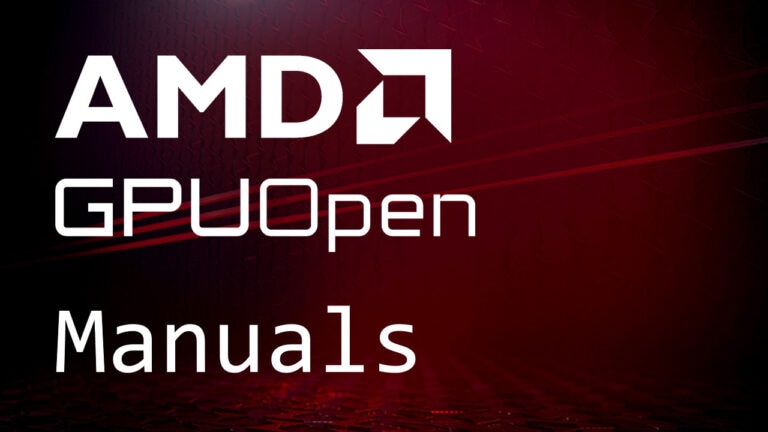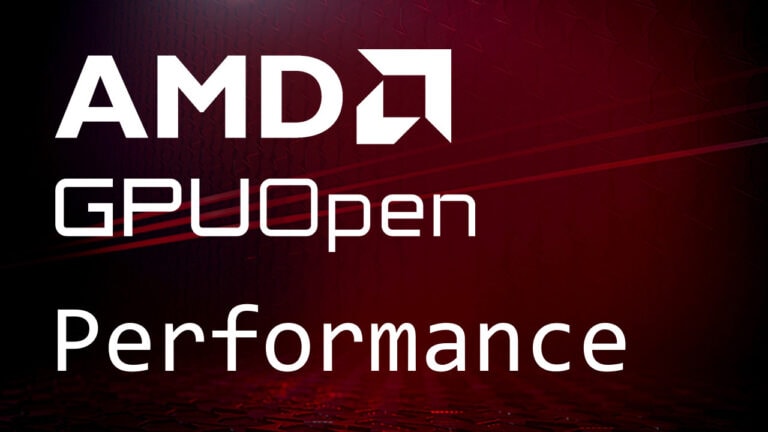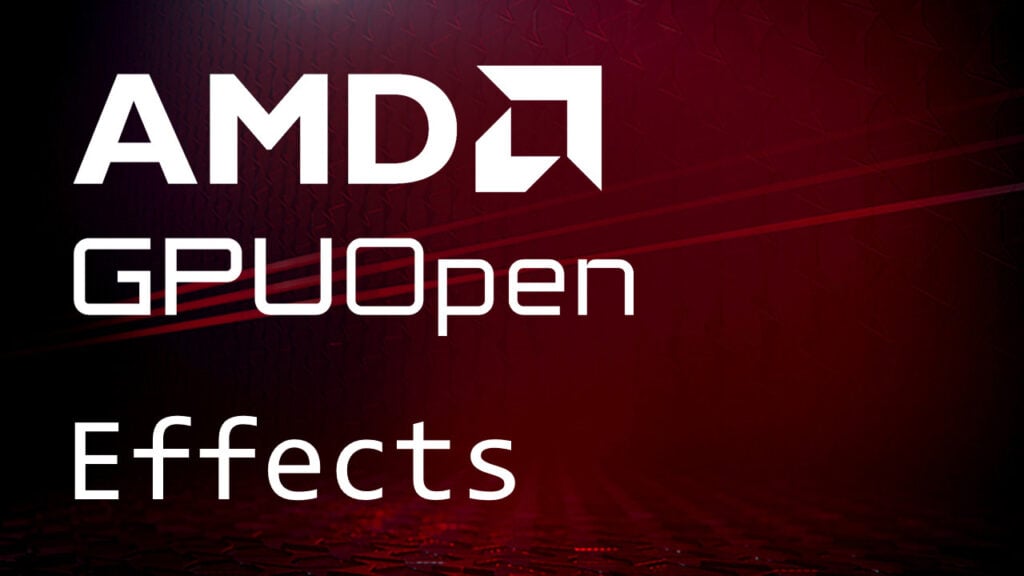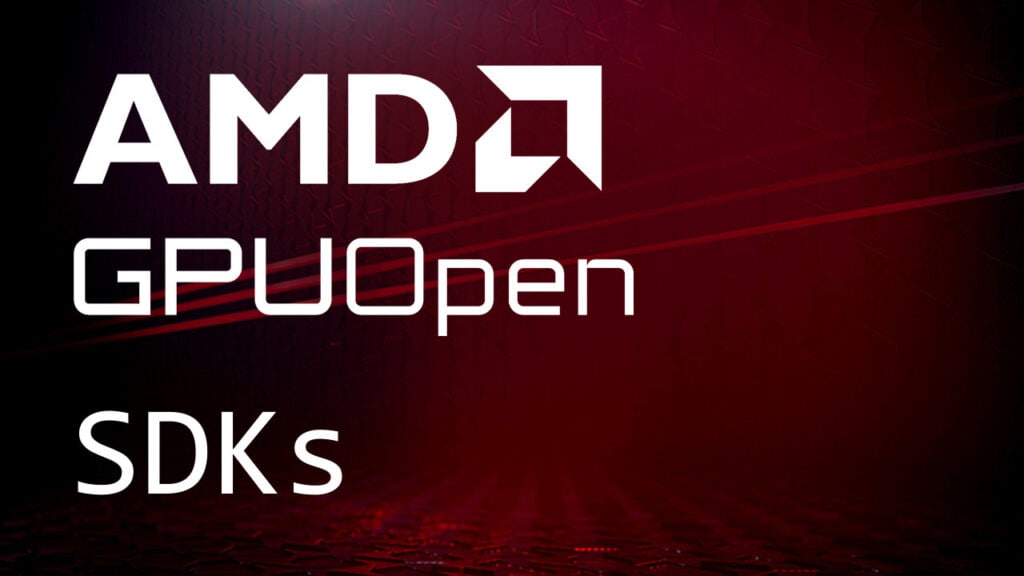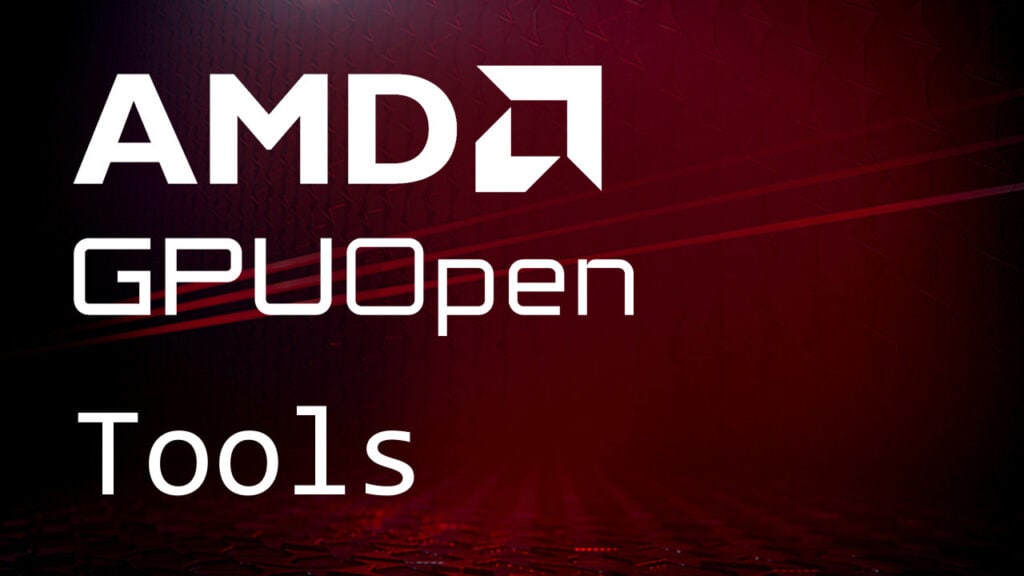GPUAutoTuning
Demonstrates how to control GPU auto-tuning when programming with ADLX.
Command Prompts
| Command Prompt | Description |
|---|---|
| 1 | Check GPU Tuning is at factory status. |
| 2 | Restore the given GPU Tuning to factory status. |
| 3 | Show GPU auto tuning support. |
| 4 | Show current GPU status. |
| 5 | Start Undervolt GPU tuning. |
| 6 | Start Overclock GPU tuning. |
| 7 | Start Overclock VRAM tuning |
| M/m | Show this menu. |
| Q/q | Quit. |
Sample Path
/Samples/CPP/GPUTuning/GPUAutoTuning
Code
//
// Copyright (c) 2021 - 2025 Advanced Micro Devices, Inc. All rights reserved.
//
//-------------------------------------------------------------------------------------------------
#include "SDK/ADLXHelper/Windows/Cpp/ADLXHelper.h"
#include "SDK/Include/IGPUAutoTuning.h"
#include "SDK/Include/IGPUTuning.h"
#include <iostream>
// Use ADLX namespace
using namespace adlx;
// ADLXHelper instance
// No outstanding interfaces from ADLX must exist when ADLX is destroyed.
// Use global variables to ensure validity of the interface.
static ADLXHelper g_ADLXHelp;
// Event to verify call back.
HANDLE g_ADLXEvent = nullptr;
// Main menu
void MainMenu();
// Menu action control
void MenuControl(IADLXGPUTuningServicesPtr gpuTuningService, IADLXGPUListPtr gpus);
// Wait for exit with error message
int WaitAndExit(const char* msg, const int retCode);
// Check if current GPU tuning status is set to factory default
void CheckGPUTuningIsAtFactoryStatus(IADLXGPUTuningServicesPtr gpuTuningService, IADLXGPUListPtr gpus);
// Restore GPU tuning status to factory default
void RestoreGPUTuningToFactoryStatus(IADLXGPUTuningServicesPtr gpuTuningService, IADLXGPUListPtr gpus);
// Display GPU auto-tuning support status
void ShowGPUAutoTuningSupport(IADLXGPUTuningServicesPtr gpuTuningService, IADLXGPUListPtr gpus);
// Display current GPU status
void ShowCurrentGPUStatus(IADLXGPUTuningServicesPtr gpuTuningService, IADLXGPUListPtr gpus);
// Derive from IADLXGPUAutoTuningCompleteListener
class GPUAutoTuningCompleteEvents;
// Start GPU auto-tuning
void StartGPUAutoTuning(IADLXGPUTuningServicesPtr gpuTuningService, IADLXGPUListPtr gpus, int num);
int main()
{
ADLX_RESULT res = ADLX_FAIL ;
// Initialize ADLX
res = g_ADLXHelp.Initialize();
if (ADLX_SUCCEEDED (res))
{
// Create event
g_ADLXEvent = CreateEvent(NULL, TRUE, FALSE, TEXT("ADLXEvent"));
IADLXGPUTuningServicesPtr gpuTuningService;
res = g_ADLXHelp.GetSystemServices()->GetGPUTuningServices(&gpuTuningService);
if (ADLX_SUCCEEDED (res))
{
IADLXGPUListPtr gpus;
res = g_ADLXHelp.GetSystemServices()->GetGPUs(&gpus);
if (ADLX_SUCCEEDED (res))
{
// Display main menu options
MainMenu();
// Get and execute the choice
MenuControl(gpuTuningService, gpus);
}
else
std::cout << "\\tGet GPU list failed" << std::endl;
}
else
std::cout << "\\tGet GPU tuning services failed" << std::endl;
}
else
return WaitAndExit("\\tg_ADLXHelp initialize failed", 0);
// Destroy ADLX
res = g_ADLXHelp.Terminate();
std::cout << "Destroy ADLX res: " << res << std::endl;
// Close event
if (g_ADLXEvent)
CloseHandle(g_ADLXEvent);
// Pause to see the print out
system("pause");
return 0;
}
// Main menu
void MainMenu()
{
std::cout << "\\tChoose from the following options:" << std::endl;
std::cout << "\\t->Press 1 to check if current GPU tuning status is set to factory default" << std::endl;
std::cout << "\\t->Press 2 to restore the current GPU tuning status to factory default" << std::endl;
std::cout << "\\t->Press 3 to display GPU auto-tuning support" << std::endl;
std::cout << "\\t->Press 4 to display current GPU auto-tuning status" << std::endl;
std::cout << "\\t->Press 5 to start undervolt GPU tuning" << std::endl;
std::cout << "\\t->Press 6 to start overclock GPU tuning" << std::endl;
std::cout << "\\t->Press 7 to start overclock VRAM tuning" << std::endl;
std::cout << "\\t->Press Q/q to terminate the application" << std::endl;
std::cout << "\\t->Press M/m to display main menu options" << std::endl;
}
// Menu action control
void MenuControl(IADLXGPUTuningServicesPtr gpuTuningService, IADLXGPUListPtr gpus)
{
int num = 0;
while ((num = getchar()) != 'q' && num != 'Q')
{
switch (num)
{
// Check if current GPU tuning status is set to factory default
case '1':
CheckGPUTuningIsAtFactoryStatus(gpuTuningService, gpus);
break;
// Restore GPU tuning status to factory default
case '2':
RestoreGPUTuningToFactoryStatus(gpuTuningService, gpus);
break;
// Display GPU auto-tuning support status
case '3':
ShowGPUAutoTuningSupport(gpuTuningService, gpus);
break;
// Display current GPU status
case '4':
ShowCurrentGPUStatus(gpuTuningService, gpus);
break;
// Start undervolt GPU tuning
case '5':
// Start overclock GPU tuning
case '6':
// Start overclock VRAM tuning
case '7':
StartGPUAutoTuning(gpuTuningService, gpus, num - 5);
break;
// Display menu options
case 'm':
case 'M':
MainMenu();
break;
default:
break;
}
}
}
// Wait for exit with error message
int WaitAndExit(const char* msg, const int retCode)
{
// Printout the message and pause to see it before returning the desired code
if (nullptr != msg)
std::cout << msg << std::endl;
system("pause");
return retCode;
}
// Check if current GPU tuning status is set to factory default
void CheckGPUTuningIsAtFactoryStatus(IADLXGPUTuningServicesPtr gpuTuningService, IADLXGPUListPtr gpus)
{
IADLXGPUPtr oneGPU;
for (adlx_uint crt = gpus->Begin(); crt != gpus->End(); ++crt)
{
ADLX_RESULT res = gpus->At(crt, &oneGPU);
if (ADLX_FAILED (res) || oneGPU == nullptr)
{
std::cout << "\\tGet the GPU at location" << crt << " failed" << std::endl;
break;
}
adlx_bool isFactory = false;
res = gpuTuningService->IsAtFactory(oneGPU, &isFactory);
if (ADLX_FAILED (res))
{
std::cout << "\\tCheck of the GPU at location" << crt << " default tuning status failed" << std::endl;
break;
}
std::cout << "\\tThe GPU at location" << crt << " default status: " << isFactory << std::endl;
}
}
// Reset the current GPU tuning status to factory default
void RestoreGPUTuningToFactoryStatus(IADLXGPUTuningServicesPtr gpuTuningService, IADLXGPUListPtr gpus)
{
IADLXGPUPtr oneGPU;
for (adlx_uint crt = gpus->Begin(); crt != gpus->End(); ++crt)
{
ADLX_RESULT res = gpus->At(crt, &oneGPU);
if (ADLX_FAILED (res) || oneGPU == nullptr)
{
std::cout << "\\tGet the GPU at location" << crt << " failed" << std::endl;
break;
}
adlx_bool isFactory = false;
res = gpuTuningService->ResetToFactory(oneGPU);
if (ADLX_FAILED (res))
std::cout << "\\tReset the GPU at location" << crt << " to default failed" << std::endl;
else
std::cout << "\\tReset the GPU at location" << crt << " to default successful" << std::endl;
}
}
// Display GPU auto-tuning support status
void ShowGPUAutoTuningSupport(IADLXGPUTuningServicesPtr gpuTuningService, IADLXGPUListPtr gpus)
{
IADLXGPUPtr oneGPU;
for (adlx_uint crt = gpus->Begin(); crt != gpus->End(); ++crt)
{
ADLX_RESULT res = gpus->At(crt, &oneGPU);
if (ADLX_FAILED (res) || oneGPU == nullptr)
{
std::cout << "\\tGet the GPU at location" << crt << " failed" << std::endl;
break;
}
adlx_bool supported = false;
res = gpuTuningService->IsSupportedAutoTuning(oneGPU, &supported);
if (ADLX_FAILED (res) || supported == false)
{
std::cout << "\\tThe GPU at location" << crt << " does not support auto-tuning" << std::endl;
break;
}
IADLXInterfacePtr autoTuni.gifc;
res = gpuTuningService->GetAutoTuning(oneGPU, &autoTuni.gifc);
if (ADLX_FAILED (res) || autoTuni.gifc == nullptr)
{
std::cout << "\\tGet auto-tuning for the GPU at location" << crt << " failed" << std::endl;
break;
}
IADLXGPUAutoTuningPtr autoTuning(autoTuni.gifc);
if (autoTuning)
{
// If ret != ADLX_OK, return default value(false).
supported = false;
res = autoTuning->IsSupportedUndervoltGPU(&supported);
std::cout << "\\tIs the GPU at location" << crt << " supported undervolt: " << supported << std::endl;
supported = false;
res = autoTuning->IsSupportedOverclockGPU(&supported);
std::cout << "\\tIs the GPU at location" << crt << " supported overclock: " << supported << std::endl;
supported = false;
res = autoTuning->IsSupportedOverclockVRAM(&supported);
std::cout << "\\tIs the GPU at location" << crt << " supported overclock VRAM: " << supported << std::endl;
}
}
}
// Display current GPU status
void ShowCurrentGPUStatus(IADLXGPUTuningServicesPtr gpuTuningService, IADLXGPUListPtr gpus)
{
IADLXGPUPtr oneGPU;
for (adlx_uint crt = gpus->Begin(); crt != gpus->End(); ++crt)
{
ADLX_RESULT res = gpus->At(crt, &oneGPU);
if (ADLX_FAILED (res) || oneGPU == nullptr)
{
std::cout << "\\tGet GPU at location" << crt << " failed" << std::endl;
break;
}
adlx_bool supported = false;
res = gpuTuningService->IsSupportedAutoTuning(oneGPU, &supported);
if (ADLX_FAILED (res) || supported == false)
{
std::cout << "\\tThe GPU at location" << crt << " does not support auto-tuning" << std::endl;
break;
}
IADLXInterfacePtr autoTuni.gifc;
res = gpuTuningService->GetAutoTuning(oneGPU, &autoTuni.gifc);
if (ADLX_FAILED (res) || autoTuni.gifc == nullptr)
{
std::cout << "\\tGet auto-tuning for the GPU at location" << crt << " failed" << std::endl;
break;
}
IADLXGPUAutoTuningPtr autoTuning(autoTuni.gifc);
adlx_bool applied = false;
if (autoTuning)
{
// If ret != ADLX_OK, return default value(false).
applied = false;
res = autoTuning->IsCurrentUndervoltGPU(&applied);
std::cout << "\\tIs the GPU at location" << crt << " undervolt applied: " << applied << std::endl;
applied = false;
res = autoTuning->IsCurrentOverclockGPU(&applied);
std::cout << "\\tIs the GPU at location" << crt << " overclock applied: " << applied << std::endl;
applied = false;
res = autoTuning->IsCurrentOverclockVRAM(&applied);
std::cout << "\\tIs the GPU at location" << crt << " overclock VRAM applied: " << applied << std::endl;
}
}
}
class GPUAutoTuningCompleteEvents : public IADLXGPUAutoTuningCompleteListener
{
public:
adlx_bool ADLX_STD_CALL OnGPUAutoTuningComplete(IADLXGPUAutoTuningCompleteEvent* pGPUAutoTuningCompleteEvent)
{
adlx_bool change = false;
change = pGPUAutoTuningCompleteEvent->IsUndervoltGPUCompleted();
change = pGPUAutoTuningCompleteEvent->IsOverclockGPUCompleted();
change = pGPUAutoTuningCompleteEvent->IsOverclockVRAMCompleted();
SetEvent(g_ADLXEvent);
return true;
}
};
GPUAutoTuningCompleteEvents gpuAutoTuningCompleteEvents;
void StartGPUAutoTuning(IADLXGPUTuningServicesPtr gpuTuningService, IADLXGPUListPtr gpus, int num)
{
IADLXGPUPtr oneGPU;
// Set the first GPU auto-tuning
ADLX_RESULT res = gpus->At(0, &oneGPU);
if (ADLX_FAILED (res) || oneGPU == nullptr)
{
std::cout << "\\tGet GPU failed" << std::endl;
return;
}
adlx_bool supported = false;
res = gpuTuningService->IsSupportedAutoTuning(oneGPU, &supported);
if (ADLX_FAILED (res) || supported == false)
{
std::cout << "\\tThe GPU does not support auto-tuning" << std::endl;
return;
}
IADLXInterfacePtr autoTuni.gifc;
res = gpuTuningService->GetAutoTuning(oneGPU, &autoTuni.gifc);
if (ADLX_FAILED (res) || autoTuni.gifc == nullptr)
{
std::cout << "\\tGet GPU auto-tuning failed" << std::endl;
return;
}
IADLXGPUAutoTuningPtr autoTuning(autoTuni.gifc);
if (autoTuning)
{
bool modeIsSupported = false;
switch (num)
{
case '0':
res = autoTuning->IsSupportedUndervoltGPU(&modeIsSupported);
if (!modeIsSupported) {
std::cout << "\\tUndervolt profile is not supported" << std::endl;
}
else {
res = autoTuning->StartUndervoltGPU(&gpuAutoTuningCompleteEvents);
WaitForSingleObject(g_ADLXEvent, 1000);
ResetEvent(g_ADLXEvent);
if (ADLX_SUCCEEDED (res))
std::cout << "\\tStart undervolt GPU successful" << std::endl;
else
std::cout << "\\tStart undervolt GPU failed" << std::endl;
}
break;
case '1':
res = autoTuning->IsSupportedOverclockGPU(&modeIsSupported);
if (!modeIsSupported) {
std::cout << "\\tGPU Overclock profile is not supported" << std::endl;
}
else {
res = autoTuning->StartOverclockGPU(&gpuAutoTuningCompleteEvents);
WaitForSingleObject(g_ADLXEvent, 1000);
ResetEvent(g_ADLXEvent);
if (ADLX_SUCCEEDED (res))
std::cout << "\\tStart overclock GPU successful" << std::endl;
else
std::cout << "\\tStart overclock GPU failed" << std::endl;
}
break;
case '2':
res = autoTuning->IsSupportedOverclockVRAM(&modeIsSupported);
if (!modeIsSupported) {
std::cout << "\\tVRAM overclock profile is not supported" << std::endl;
}
else {
res = autoTuning->StartOverclockVRAM(&gpuAutoTuningCompleteEvents);
WaitForSingleObject(g_ADLXEvent, 1000);
ResetEvent(g_ADLXEvent);
if (ADLX_SUCCEEDED (res))
std::cout << "\\tStart overclock VRAM successful" << std::endl;
else
std::cout << "\\tStart overclock VRAM failed" << std::endl;
}
break;
default:
break;
}
}
}





